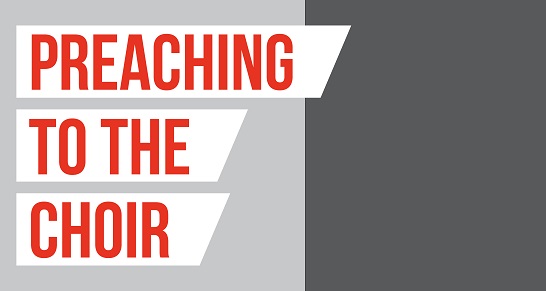Making customers feel good is a powerful marketing experience. When I receive thank-you notes from a classroom of children after making a donation on Donors Choose, I feel amazing. When I receive a product that I backed on Kickstarter, I feel like I’m a part of something bigger. To help me feel good about the decisions I’ve made, these organizations are committed to empowering their customers and supporters so they continue to make decisions that make them feel good. It’s addicting! And yet, so many organizations and advocates struggle to connect with their audience.
Social media has provided us with the opportunity to connect with networks of people who have similar interests, careers and who share similar types of information. It’s great to be able to meet so many like-minded individuals, but it can be challenging to understand other points of view. For advocates and activists, learning to see things from different perspectives is necessary in crafting the right message for the right audience and yet, so many fail to connect with those who are skeptical or unconvinced about a product, service, or cause.
When you’re passionate about a cause, it’s hard not to get involved with other people who share your passion. But when you spend much of your time talking to others who are already convinced, it’s easy to consider those who don’t agree with you as wrong. Not only can this alienate you from an audience who might benefit from education and awareness, it also creates an ‘us vs. them’ mentality. Once battle lines have been drawn, it’s much easier to identify differences than it is to embrace commonalities.
I see this all the time within the health and wellness, and education technology communities.
- You’re either for healthy living or you’re against it.
- You’re either for technology in the classroom or you’re a luddite.
It’s very hard to find a common ground — because preaching to the choir is much easier than taking the time to listen and learn from those who see things differently. Yet, if you’re willing, there are some ways you can reach out to those who may see things differently than you do.
Don’t Assume Anything. Not all overweight people are lazy. Not all skinny people are healthy. When you can stop making generalizations and assumptions, you can start to see people as individuals with individual experiences that have shaped their lives and behaviors.
Share Positive Outcomes. Changing behaviors is hard work, but if you highlight what that change can bring it can be easier for people to visualize. Don’t tell people that they’re part of the problem; show them how they can be a part of the solution.
Talk About Your Mistakes. Perfect is hard to relate to, but everyone can understand what it’s like to be vulnerable. Share stories about the mistakes you made, the challenges you faced and how you were able to overcome them.
Don’t Try to Solve Problems (At Least Not At First). Nobody likes a know-it-all. Sometimes people aren’t looking for you to solve all their problems, just a sympathetic, empathetic ear. By proving you are as committed to listening as you are to facilitating change, people will start to trust you. The more they trust you, they more influential you can be.
There’s no doubt it can be challenging to advocate for a cause, especially when others may not be as passionate about it as you are. And while it might be tempting to reduce differences of opinions to childish name calling, it will benefit you in the long run, if you take the time to connect with others. Who knows — you might even learn from them.

